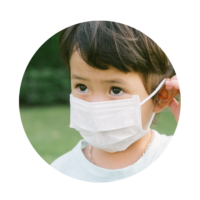Expert guide
-

How to spot and support students who have experienced trauma
Blog from Amy Sayer. “The need to spot and support students who have experienced trauma has become increasingly urgent and necessary within educational settings.”
Read more -

Practitioner Review: Attention-deficit hyperactivity disorder and autism spectrum disorder – the importance of depression
Open Access paper from the JCPP – “Young people with neurodevelopmental disorders, such as attention-deficit hyperactivity disorder and autism spectrum disorder, show high rates of mental health problems, of which depression is one of the most common. Given that depression in ASD and ADHD is linked with a range of poor outcomes, knowledge of how clinicians should assess, identify and treat depression in the context of these neurodevelopmental disorders is much needed”. Anita Thapar (pic) et al.
Read more -

Mood Disorders and ASD: What not to miss
The autism community identified mental health as their top research priority in 2016.¹ Autistic children and adolescents are more likely than their general population counterparts to have psychiatric disorders.² For bipolar disorder, rates of 7% are seen in autistic children and adolescents versus 1% in their general population peers.
Read more -

Reflections on working psychotherapeutically in schools
One of the greatest challenges in my experience of working psychotherapeutically in schools has been in trying to balance the increasing complexity of children’s mental health needs with the reduction in funding and therefore time frame in which to work.
Read more -

How can we model the brain when it goes awry? How Reinforcement Learning Models can shed light on Psychiatric Disorders that emerge during Development.
It is well-established that many psychiatric disorders initially emerge during the formative time periods of childhood and adolescence (Kessler et al., 2005; Paus, Keshavan, & Giedd, 2008), when the brain is consistently subject to growth and experience-related changes. This applies not only to classic neurodevelopmental disorders like attention deficit hyperactivity disorder (ADHD) but also to psychiatric disorders like depression or obsessive-compulsive disorder (OCD), which are often attributed to adulthood (Hauser, Will, Dubois, & Dolan, 2019).
Read more -

COVID19 Resources on Child & Adolescent Mental Health
Take a look at this growing page of evidence-based resources, research and advice in relation to COVID19’s affect on child and adolescent mental health.
Read more -

CAMHS services in our physically distanced world
On March 23rd 2020, the way healthcare was provided in England had to change overnight. With the COVID-19 pandemic sweeping across the country, CAMHS staff had to adapt to the news that they must provide routine services from home where possible and all non-urgent face-to-face contact must cease to prevent the spread of the virus.
Read more -

City living and psychosis: Unpicking an old question using new data
Decades of research point towards a role of urban upbringing in mental health problems, particularly psychosis. Leading theories often refer to the “stress of the city” as a driving factor. Developments in fields spanning geography to genetics call for renewed attention on the topic.
Read more -

Developments in Eating Disorders Research
As everyone’s thoughts are dominated by the impact of COVID-19 on mental health and wellbeing, it seems pertinent to start by thinking how people with or at risk of eating disorders may have been affected. Research suggests that the impacts differ according to the type of eating disorder concerns and behaviours.
Read more -

Managing transition for school leaders post lockdown
Short film from charity Nip in the Bud about strategies school staff can use to support children through difficult transitions so that they feel happy, safe and open to learning.
Read more